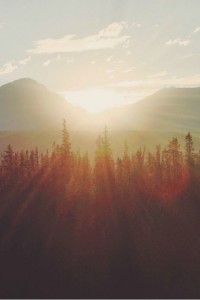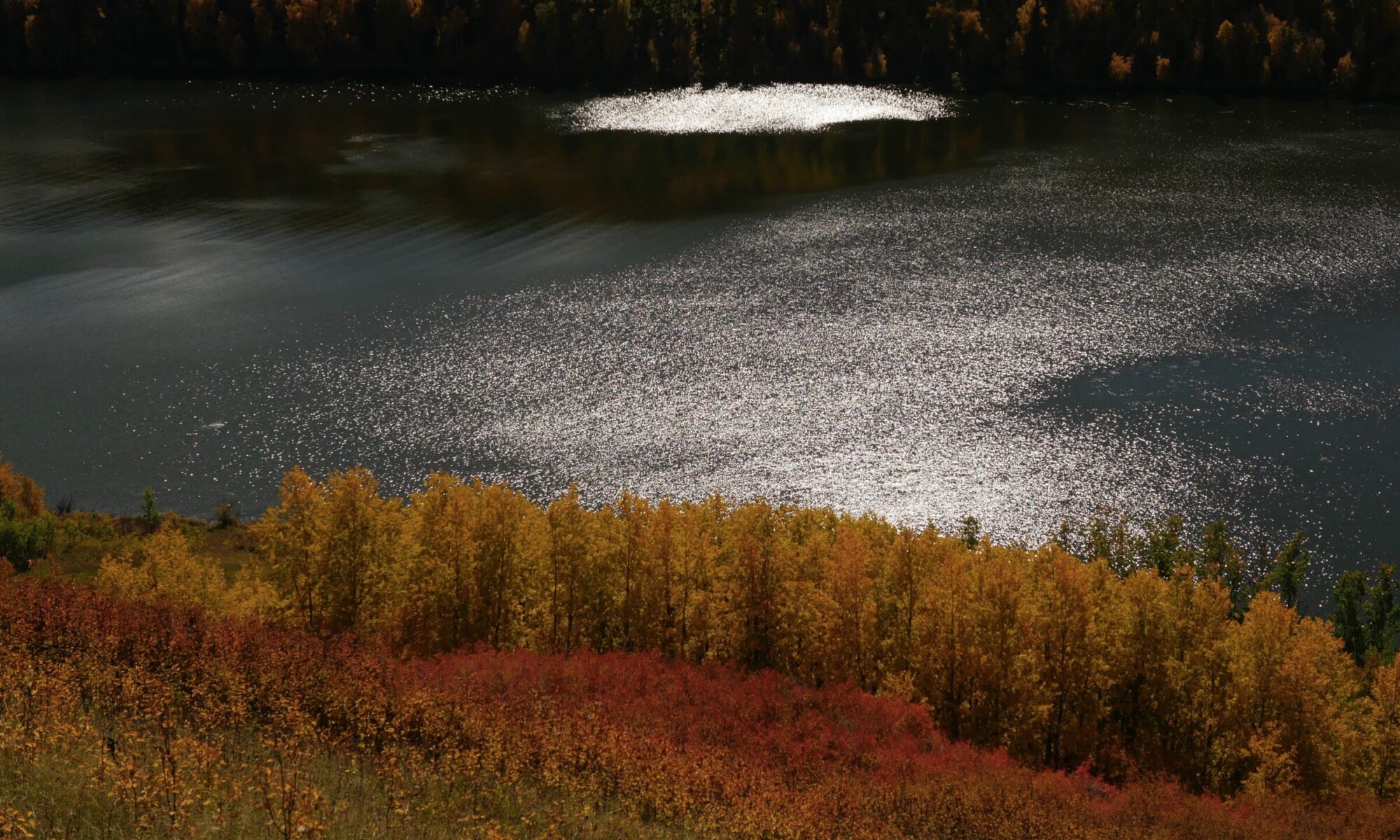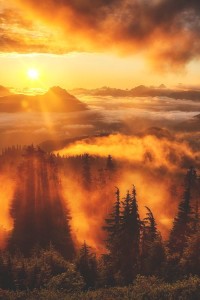Welcome Address, Making Peace with the Land Conference, November 13th 2015
Welcome. My name is Carmelle and this is Leslie Lindballe. We stand here on behalf of the community gathered to say welcome and to bring us into our time together. We are humbled and hope the words we will speak are a true reflection of the hopes and concerns and stories that have brought us each here this evening.
Those who gather here for the first time, Welcome. To those familiar faces, Welcome anew. We have come from places near and far. From Treaty 6, 7, 8, and 11. From eastern edges and west coasts. Northern skycapes and southern flatlands. We are also from Johannesburg, Jakarta, Ireland, Australia. Dare – if you would – to gently look around you: Places of the world are gathered.
 The place we each come from is its own world of details and textures, unique. In its particularity, it stands alone; it is a language of its own; has a story of its own. So too does this land. For tousands upon thousands of years, this land has been the home of creatures, flora and fauna. When the glaciers descended into Ocean, this land’s first human-inhabitants entered in. They followed the musk ox, salmon, the ancient reindeer, and they called this land: Turtle Island. From the Bering Strait, journeys continued: down the Rocky Mountains, east into horizon, south unto the end of the Andes. This land became the home of Cree, Blackfoot, and Chipewyan peoples and other indigenous communities. Seasons later, newcomers arrived in search of better lives for generations to come, and this land gave them home too. We acknowledge and thank all who have known this land and taken care of it as home. They give us life.
The place we each come from is its own world of details and textures, unique. In its particularity, it stands alone; it is a language of its own; has a story of its own. So too does this land. For tousands upon thousands of years, this land has been the home of creatures, flora and fauna. When the glaciers descended into Ocean, this land’s first human-inhabitants entered in. They followed the musk ox, salmon, the ancient reindeer, and they called this land: Turtle Island. From the Bering Strait, journeys continued: down the Rocky Mountains, east into horizon, south unto the end of the Andes. This land became the home of Cree, Blackfoot, and Chipewyan peoples and other indigenous communities. Seasons later, newcomers arrived in search of better lives for generations to come, and this land gave them home too. We acknowledge and thank all who have known this land and taken care of it as home. They give us life.
Much more recently, over the last 4 years people have gathered here each November – calling this place home for a few days at least. People of acute differences though: different in our opinions, in our privilege, and our stories. Agrarian and conventional farmers; students; First Nations; environmentalists; workers in oil and gas; artists; government representatives; parents have gathered together. Nothing more nor less than that. In all these diversities and differences though, we’ve discovered there is a common place we all call home too. It transcends the borders we’ve drawn with laws and oceans and closedminds that otherwise keep us only Different. It holds our disparate realities together. This commonhome also (and always) makes us One. Even when we are so at odds with each other.
Which brings us to today. We gather this evening because we are faced with the question of what a more beautiful world could look like, and how to make it real for us and for our children.
We gather because we are reaching the ends of our tethers. The instability of the climate, broken communities, devastated ecosystems, disappearing diversities. We awake today and see that the figures are growing, but the trees, our homes and lands were disrespected. We see our education strip from our children their sincerest questions and inmost songs; state politics fail to address our profoundest hopes and tensions. We stand upon a chasm growing, between rich and poor. And between left and right, men and women, indigenous and settler, right and wrong. Despite our intent, we find ourselves in an untouchable structure that has set our livelihoods in opposition to each other. One community, one homeland, one body, at the expense of another. And so in some alien form of coping with the reality that to afford my family’s shelter means my neighbour cannot drink her water, we do not see each other. We do not see each other anymore… We do not see the missing woman as our daughter, the prime minister as our brother, the riverbank as our mother, the rock and soil as our great grandfathers. We are neighbour against neighbour, country against country, religion against religion, relation against relation.
As suffering increases each day, we attempt to protect this world we love. Our parents, our watersheds, and our ideals and values. Yet, how we are doing so it seems, is alienating us further too. In protection of those we hold dear, we push away the perpetrator. Can reconciliation happen when the perpetrator is so shamed, so left alone, when they are so sick?….
“Upon each of us, the wound of Separation lands in a different way. We seek our medicine according to the configuration of that wound. To condemn someone for doing what we see as selfish and evil behaviour, and to try to suppress it without addressing the underlying wound is futile. We cannot know another’s story, so we cannot judge. We can only say, ‘I would do as you do, if I were you. We are one.'”
– Charles Eisenstien, The More Beautiful World Our Hearts Know is True
Might I venture to say that our most compelling imperative today – if one is permitted to speak in such ways – is to learn the names and faces of our neighbours. To see our enemies as those who most need love; members of our family; of the same Home.
We have been laboring under the notion that we are not enough; that when we speak of subtle worlds and invisible landscapes we speak nonsense. But we could choose to live in such away again! Our ancestors have spoken about this for thousands of years, and elders do today. They said, “In times of urgency, slow down and be.” “Be at peace when you are lost.” And “the dark makes everything possible.” Perhaps if those elders were to address us today they would say that we have been valiantly attempting what only the whole can ‘do.’
Which means that what we are doing right now is profoundly, profoundly significant. For we are gathering un-alike, with pasts to reconcile and essential gifts to offer. And not with homogeneity as our goal but rather: to hear each voice, see each other, to be with the land again. From there, Love flows, and our path to the better world appears before us. There, we come into the awareness of our infinite interconnectedness – an ancient truth we know within us and a biological cosmic reality that: we are of each other.
That’s hope of a different persuasion.
Alas, to do so means we welcome the wholeness and brokenness of each other. Unconditional. Love, even though it pains us, demands us; even though we may not understand or agree. That’s the spirit of the lands. That’s the hard, hard work of our time. But, we are capable of it.
So welcome: as you are. We are One Family. Together, we are Whole. Together, peace becomes.
–

